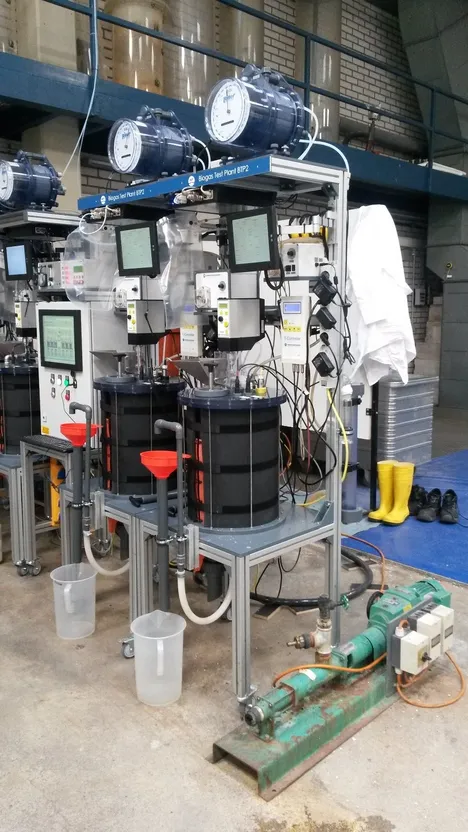Until 2050, about 80 % of the German energy consumption is intended to be based on renewable energy. Within the same timeframe, the emissions of the greenhouse gas CO2 are aimed to be reduced by 80 % with respect to the level of 1990. The development of renewable energies and the reduction of greenhouse gases are therefore mandatory to successfully contribute towards the intended energy transition. Anaerobic digestion makes an important contribution to the renewable energy portfolio of Germany already. Nevertheless, within the framework of energy transition, increasing the efficiency of existing biogas plants is getting more and more into focus.
Wastewater treatment plants in Germany are responsible for about 20 % of the municipal energy consumption and emit roughly 3 million tons of CO2 every year. Currently, the chemical energy bound in wastewater is, at least partly, recovered in form of energy-rich methane by the anaerobic digestion of sewage sludge. During the anaerobic treatment, CO2 is produced as a byproduct. Thus, it is crucial to improve the balance between energy demand and energy production by simultaneously reducing the CO2 footprint of wastewater treatment plants.
Recent studies reported an increased methane yield by CO2 enrichment. However, the transformation pathways that lead to an increased methane formation by CO2 conversion have only been hypothesized so far. The hypotheses comprised possible effects, such as an increased substrate turnover, redox reactions, a change in the carbon acid equilibrium and a reduced ammonia inhibition, leading to the bioconversion of CO2 to methane.
This project aims on the identification of the main mechanisms of bioconversion by applying stable isotope labeling of the injected CO2 for tracking the biological conversion pathways and comprehensive microbial analysis of the established biocenosis under CO2 enrichment. Therefore, a continuous anaerobic digestion fed with sewage sludge will be carried out in two laboratory-scale reactors in parallel, whereas one reactor is enriched with CO2 and the other acts as a control. The continuous operation of the reactors provides comparable conditions as in full-scale digesters. The results will help to optimize the digestion process by a deeper understanding of the underlying processes of CO2 enrichment. Using the “waste product” CO2 in anaerobic digestion to exploit the potential for energy production from waste streams can therefore make a substantial contribution to advance energy transition.
